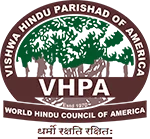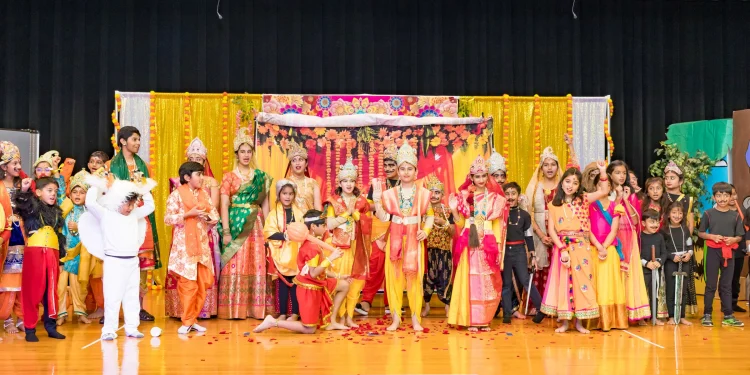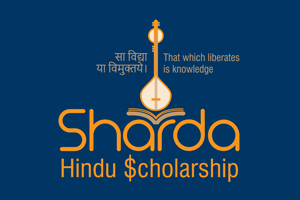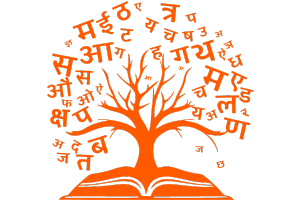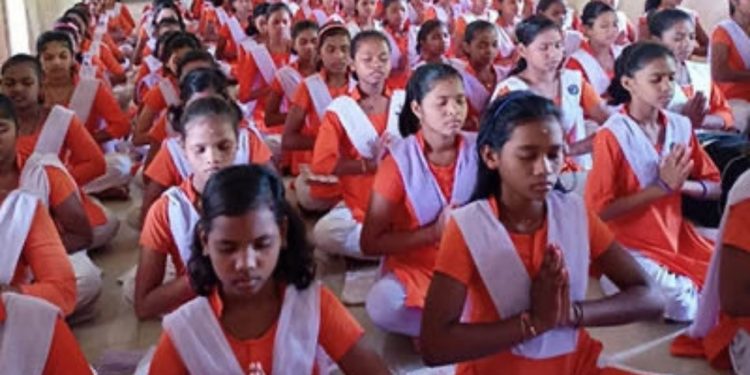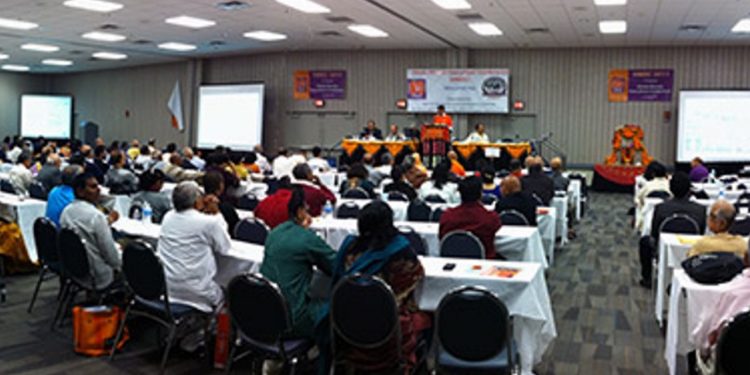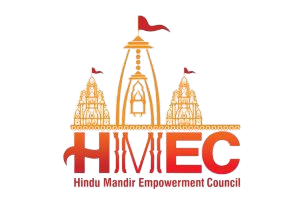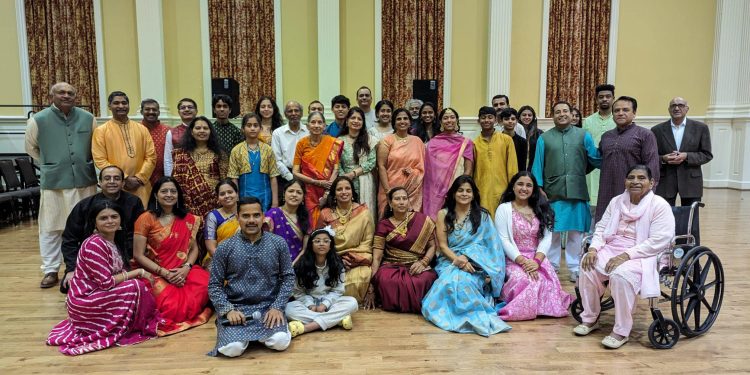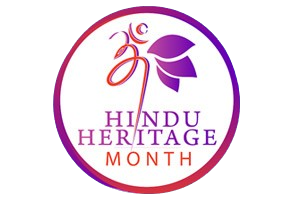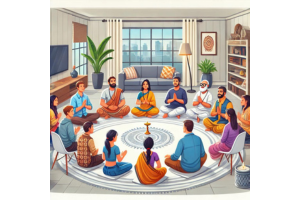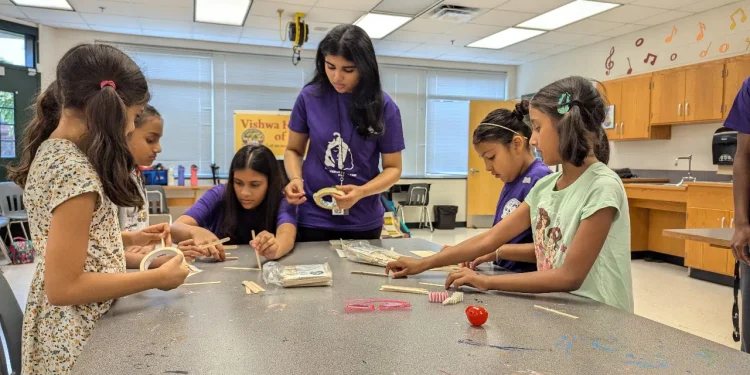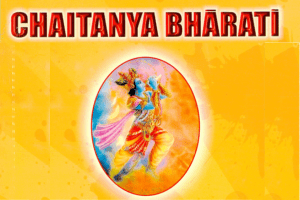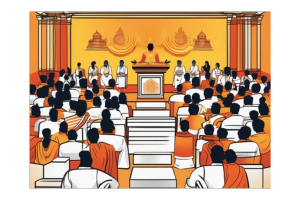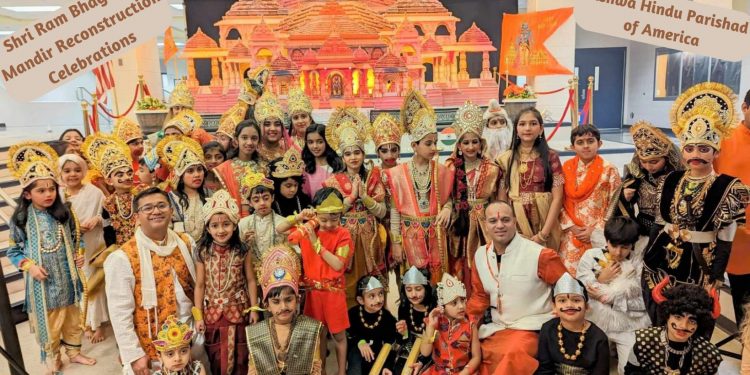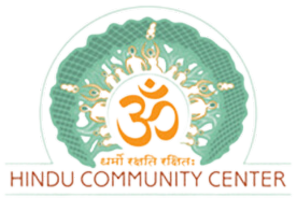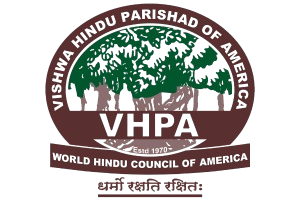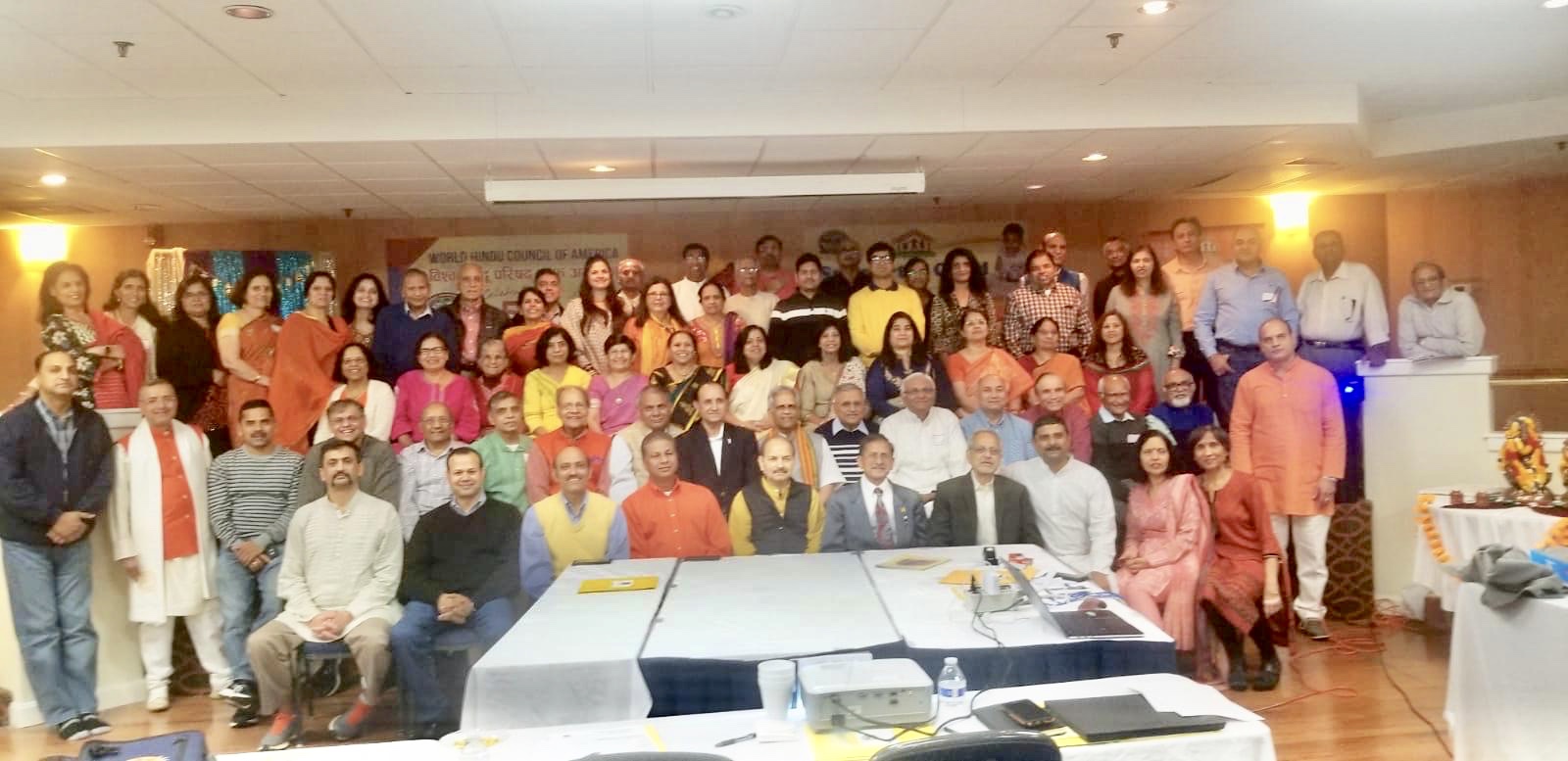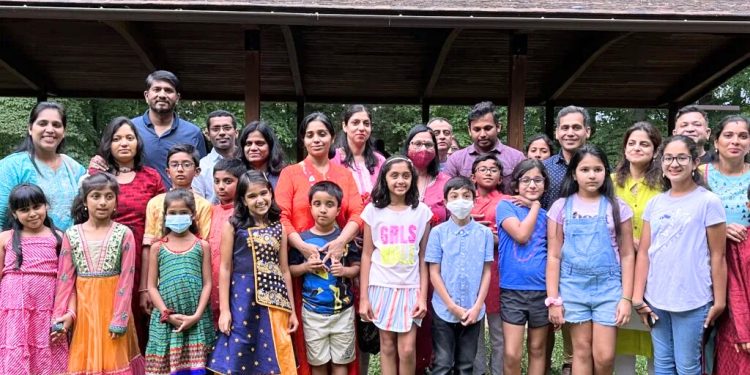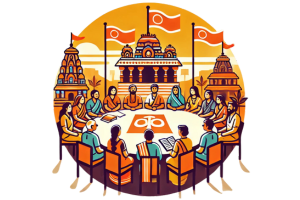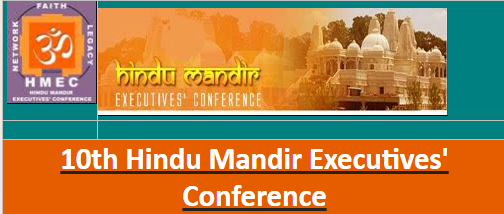Ninth Annual Hindu Mandir Executives Conference (HMEC) – 2014
September 24, 2014
PRESS RELEASE, For Immediate Release
Ninth Annual Hindu Mandir Executives Conference (HMEC) – 2014
Over 200 adult and youth delegates representing over 85 Mandirs (Temples) and Hindu organizations, from across the world, attended the ninth annual Hindu Mandir Executives’ Conference (HMEC) that was held from September 19 through 21, 2014 in Orlando, Florida. The 9th HMEC was co-hosted by a record 47 Hindu temples and Hindu organizations from across the United States, Canada and the Caribbean. The theme of the conference was: “The Role of Temples in Hindu Education.”
The program consisting of 22 sessions with 115 speakers and moderators was meticulously composed by a national program committee assisted by a team of over 25 experienced and committed Temple executives and youth delegates. A message to the Hindu community was delivered by Rick Singh on behalf of the Mayors of Orlando and Orange county. Says Pandit Amar Seeprasad from Trinidad, “I was blessed to be present at HMEC 2014, I think it was really great and extremely encouraging for all those who were present. I thought that great and valuable amount of information and knowledge was shared, and answers for many of the problems and challenges we face were given.”
Mandir issues were at the forefront of the discussion. The Hindu community in North America has always sought effective ways to deal with the challenges of a Western / American society. The participants discussed how the temples, through community involvement, can contribute to the American society in many ways such as, coping with and reducing stressful situations through traditional practices, and by referrals to the right resources available via local city, county, and federal agencies. The panelists felt that the benefits of offering such services are enormous for all members and their families and for the growth of the temple. A special session was organized to discuss Mandir etiquette and best practices. Hinduism is a culture of respect, acceptance and gratitude. It values purity (saucha) and dignity (maryada): observance of propriety, politeness and good taste in conduct or appearance. Ways to sustain and further foster these values were discussed. Experts and teachers from a mix of Hindu traditions shared their perspective on the educational challenges facing various Hindu communities and how to handle them. Pandit Ravi Persaud talked about the challenges faced in schooling for Hindu children in Guyana. “It was absolutely my learning pleasure and privilege. I am glad to be an instrument in this great initiative,” Ami Patel a youth delegate from Toronto, Canada who scribed the conference proceedings.
A special session was dedicated to teaching Hinduism in Universities. With the increasing academic awareness of Hinduism, many universities and colleges offer courses on the subject which are often taught by non-Hindu practitioners. This session was aimed at gaining an understanding of the perspective and experiences of the professors. Swami Sadasivanatha Palaniswami of Hinduism Today presented practical proposal on “Mandirs’ Educational Model.”
During three different and exclusive sessions, organized and executed by youths many innovative suggestions were made on how the youth can contribute in the sustaining of Dharma and become future leaders. Displays by various organizations generated lot of interest and exchange of ideas among delegates. Bhavesh Lad said, “Length of rituals is not a problem as long as devotees are emotionally connected.” Sohini Sircar wished, “Mandirs should offer Gita classes to help modern day Arjun (youth) to overcome his/her dilemma.”
Hinduism is primarily based on transference of knowledge from one generation to the next. Doing so requires developing proper ‘content’ taking into account the current needs and future requirements. The content so developed by collective endeavor should be ‘inclusive’ of commonly acceptable concepts, teaching and practices. This big challenge necessitating the support of modern day techniques of knowledge management was discussed in a session called Developing Common Content Collectively.
The need to invest time to locate authentic and reliable Hindu-centric information from search engines was discussed. It was agreed that there is a need to establish infrastructure of authentically rated Hindu centric knowledge base in succinct form. The infrastructure would include authenticity ratings, peer reviewers, networked libraries at temples, technology know how’s, databases of writers, publishers, producers, artists, availability of courses, degree programs, and business plan for information clearing house. In a session titledDeveloping Common Infrastructure Collectively Robert Arnett spoke about creating a Hindu Library Digital Network.
Surabhi Adesh and her group gave a beautiful performance during the Saturday evening Gala Dinner program. The Science and Sanatan Dharma Scholarship for Youth winners were announced at the program by Harsh Dave.
The ninth HMEC passed the following resolutions:
1. All the temples in North America should appoint a teacher on a regular basis; good scholars who can talk about Hindu Dharma and spiritual texts and connect the second and third generation with our religious tradition.
2. Develop plans and strategies for the libraries of North American Hindu temples to share resources among each other and the libraries and other repositories across North America and worldwide.
3. Encourage and facilitate participation of North American Hindu Temples in variety of projects in India initiated by NGO and the Government initiatives such as Save the Ganga and Air Pollution Reduction projects.
4. Form a task force at the temple management level for dispute resolution. HMEC shall form a task force to help in mediating and counseling in resolving disputes at national level. The goal is to minimize the number of legal disputes involving temples.
5. Temple facilities such as community halls or fund raising events should be consistent with charter and values of temple and Hindu Dharma. This includes not serving alcohol or non-vegetarian food or selling Bollywood movies.
6. HMEC should establish an endowment fund to create self-sustaining source of fund to meet its ongoing operational needs.
Welcoming HMEC’s resolution of participation of North American Hindu Temples in ‘Save the Ganga’ project, Honorable Central Minister of India Uma Bharti ji conveyed, “With your (HMEC) cooperation we will do it even better.” The concluding thoughts were delivered by Shri Narayancharandas who emphasized the principle of “Dharmo Rakshati Rakshitah” – collective sustenance of Dharma. A temple tour was organized for the interested delegates on Sunday morning.
HMEC
The vision of HMEC is to be the network of Hindu Organizations for effective leadership generation to generation In North America. Representatives from Hindu temples meet to deliberate and solve issues collectively. This conference provides a great opportunity to community leaders to learn from each other and ultimately grow as one community. The World Hindu Council of America (VHPA), founded in 1970 and incorporated in the state of New York in 1974, is an independent, nonprofit, tax- exempt and volunteer-based charitable organization serving the needs of Hindu community in USA. It aims to build a dynamic and vibrant Hindu society rooted in the eternal values of Dharma and inspired by the lofty ideal of Vasudhaiva Kutumbakam, i.e. the entire creation is one family. For more information on VHPA, please write to media@vhp-america.org or visit www.vhp-america.org
Hindu Mandir Executives’ Conference · An Initiative of VHP of Americawww.myhmec.com · P.O. Box 611, Iselin, NJ 08830 · (508) 875-0432· gs@vhp-america.org
Contact Details:
Utsav Chakrabarti – Director, Relations; socialmedia@vhp-america.org; Tel: 443-6910759
